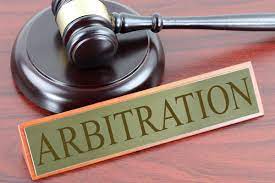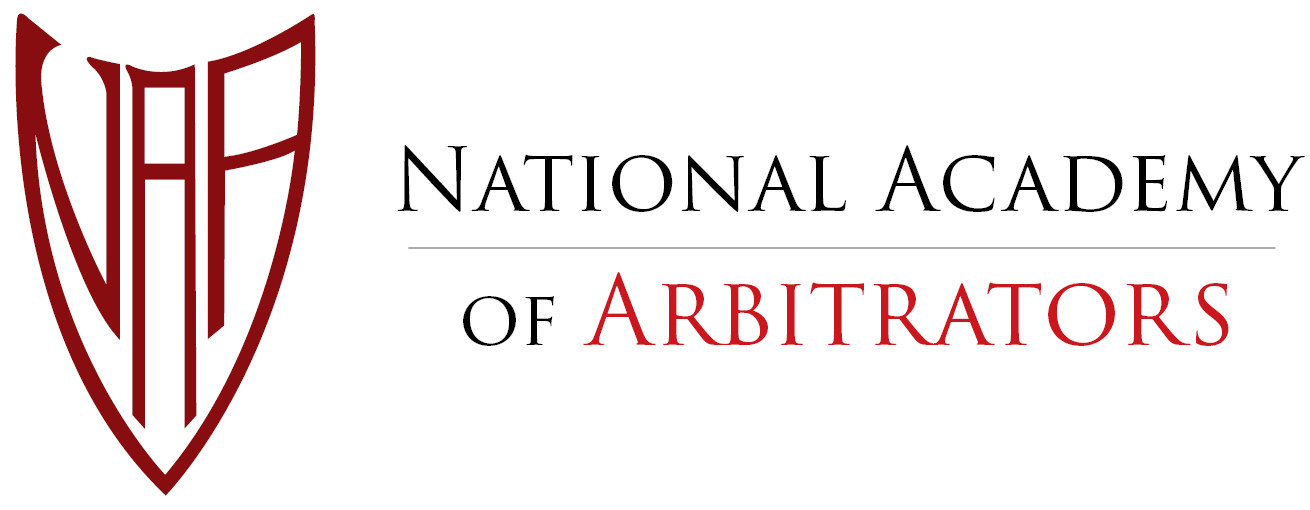
March 9, 2022
Questions About the Ending Forced Arbitration of Sexual Assault and Sexual Harassment Act
The recently passed Ending Forced Arbitration of Sexual Assault and Sexual Harassment Act amends the Federal Arbitration Act (FAA). It may impact labor arbitration, perhaps with unintended consequences. Members of the National Academy of Arbitrators, Lise Gelernter and Mark Travis, answer a few questions posed by Ariana Levinson, Professor of Law at University of Louisville Brandeis School of Law, about the potential impact. We hope to continue dialogue about these issues, and we welcome your thoughts. If you have responses to share with us and/or post alongside Arbitrator Gelernter’s and Travis’s responses, please email your responses to Ariana at…

Dec. 18, 2021
The Supreme Court of Canada Redefines the “Exclusive Jurisdiction Model” of Labour Arbitrators
(By Paula Knopf, a labour relations and dispute resolution arbitrator and mediator and member of the NAA.) The Supreme Court of Canada has continued its pattern of declaring that any issues arising out of the application, violation, enforcement or interpretation of collective agreements fall within the “exclusive” jurisdiction of labour arbitrators, thereby leaving labour disputes out of the realm of the courts. The pattern began with the case of Weber v. Ontario Hydro in 1995 when the Court adopted an “exclusive jurisdiction” model for labour arbitration. The Court ruled that where the essential character of a dispute in a unionized…

April 18, 2021
Bales On Arbitration Awards in the Covid-19 Era
The COVID-19 pandemic of 2020-21 changed working conditions for millions of Canadians quickly and dramatically. Employers responded by requiring employees to quarantine, implementing workplace COVID policies, disciplining employees who violated those policies, changing work schedules, cancelling leaves or vacations, and furloughing or laying off employees. Unions have challenged many of these actions, raising a variety of novel issues that are now being resolved through labour arbitration. In Novel Issues in Canadian Labour Arbitration Related to Covid-19, Dean Richard Bales (NAA Member), surveys those labour arbitration awards.

Dec. 23, 2020
NJ State Courts Answer Questions About the FAA and “Transportation Workers”
A State Supreme Court and a Federal District Court in New Jersey Answer Two Questions the U.S. Supreme Court Left Unanswered About the FAA Exemption for “Transportation Workers” by Lise Gelernter (Member, National Academy of Arbitrators) The New Jersey Supreme Court and a federal District Court judge in New Jersey answered two of the many questions the Supreme Court left open when it ruled in the 2000 Circuit City case that employment contracts of an undefined group of “transportation workers” are exempt from the Federal Arbitration Act (FAA). Circuit City Stores, Inc. v. Adams, 532 U.S. 105, 119 (2001). One…

Oct. 30, 2020
Arbitrator Zack’s Letter Responding to NYT’s Editorial
On Oct. 23, the NYT published Professor Zack’s letter responding to the NYT editorial early in October regarding the arbitration of police disciplinary cases. Prof. Zack’s letter is available here (once in the page, scroll down to find Prof. Zack’s letter).

Oct. 8, 2020
NAA President Daniel Nielsen Responds to Recent NYT Editorial
NAA President Daniel Nielsen rebuts a NYT editorial that calls for the elimination of police arbitration as the solution for the nation’s police crisis. The editorial’s title To Hold Police Accountable, Ax the Arbitrators speaks for itself. President Nielsen’s letter can be found here.

July 24, 2020
Kochan on Labor Market Policy
In this interview that follows one year after his presentation at the NAA’s 2019 Annual Meeting, MIT Professor and Academy member Tom Kochan summarizes three changes he proposes to U.S. labor policy that “will help the country achieve a future with broadly shared prosperity — and a new, more equitable social contract governing work:” The changes include: (1) updating antiquated labor laws that fail to give workers a voice in key decisions about how work is conducted; (2) correcting the fundamental failures of U.S. labor law to protect workers who undertake to form unions and establish collective bargaining relationships;…

June 3, 2020
Statement by the NAA President on Institutional Racism
We have all seen the film of the death of George Floyd, and witnessed the still unfolding aftermath. All of us are shaken, not by the protests, but by the need for public protests to drive home the fact that much of the “progress” we congratulate ourselves on achieving is illusory, and that racism in our institutions is still a very real and pervasive part of American life. We are arbitrators, and as arbitrators, we pride ourselves on approaching every situation on its merits, without any taint of preconception or generalization. No one can fully shed their life experiences, but we can and…

April 18, 2020
NAA’s Best Practices Guide for Conducting Video Hearings
The NAA’s Videoconferencing Task Force recently released its 2021 Best Practices Guide for Conducting Video Hearings. This is just one of many resources that the Task Force has made available to the public within the last year. For a complete list of resources see here.

March 17, 2020
Videoconference Procedures – A Primer
In light of recent developments related to the Covid-19 outbreak, and given the advice to practice social distancing, we share with you Videoconferencing Procedures – A Primer. The document is drawn from a presentation by Jeanne Charles at the NAA 2019 Fall Education Conference in Savannah, GA. Arbitrator Charles is the chair of the NAA’s Videoconferencing Task Force. Joan Dolan and Homer La Rue serve as co-chairs.
